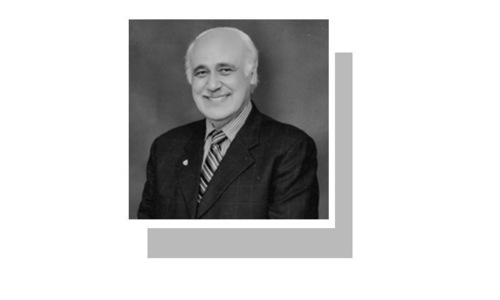ISLAMABAD: Justice Syed Mansoor Ali Shah of the Supreme Court on Thursday observed that judges not in touch with science cannot produce jurisprudence.
“As a judge, I feel this is a great judgement that has opened the gates of science to walk into our courtrooms,” said Justice Shah while giving a keynote speech at a report launch commemorating the one-year anniversary of Safia Bano judgement, popularly known as schizophrenia verdict on mentally ill death row prisoners.
The launch was hosted by Justice Project Pakistan (JPP).
The apex court in its landmark judgement commuted the death sentences of two mentally ill death row prisoners — Kanizan Bibi and Imdad Ali — barring the execution of individuals who are severely mentally ill as well as setting key safeguards for such defendants on death row.
“Before this judgement, there was no sensitivity towards mentally ill individuals in the system,” Justice Shah observed, adding the judgement speaks about the basic concept of human dignity. Human dignity encapsulates the notion that every person has inherent equal worth.
Says before Safia Bano judgement, there was no sensitivity towards mentally-ill individuals
In the judgement, a five-judge Supreme Court bench headed by former Justice Manzoor Ahmed Malik had held that carrying out the death sentence will not meet the ends of justice if a condemned prisoner, due to mental illness, was found to be unable to comprehend the rationale and reason behind his or her punishment.
The JPP commemorated the anniversary of the historic ‘Safia Bano’ judgement which banned the execution of mentally ill prisoners in Pakistan, with the launch of their latest report, “Trapped Inside: Mental Illness and Incarceration.”
The report, launched in collaboration with Monash University Australia, aimed at informing domestic and international stakeholders about the shortfalls in existing legal frameworks and the systemic flaws that compound the plight of the mentally ill in Pakistan’s criminal justice system.
Bryce Hutchesson, the interim Australian high commissioner, gave the second keynote speech.
The report launch included a panel discussion with panelists such as Professor Dr Mowadat Rana, who served as amicus curiae on the case, National Commission for Human Rights (NCHR) Chairperson Rabiya Javeri Agha, IG prisons Sindh Kazi Nazeer Ahmed and Additional Advocate General Barrister Qasim Chohan. The panel was moderated by JPP’s policy and advocacy officer Haris Zaki.
“This is not a landmark judgement for just Pakistan but the whole world,” said Bryce Hutchesson.
“Mentally ill people are at the bottom of the ladder in our society. There is no redress for mental health in the country. If this is the situation for ordinary citizens, imagine what the state of incarcerated individuals is,” said the NCHR chairperson.
“Mentally ill individuals in the justice system should be placed in mental health facilities instead of jails,” said the IG prisons Sindh.
“This judgement sensitises everyone to the plight of mentally ill persons in the justice system. This sensitivity still needs to percolate into us,” said the additional advocate general.
“The mental health institutes must be reformed for us to care for the mentally ill properly,” said Professor Rana.
Published in Dawn, March 18th, 2022













































